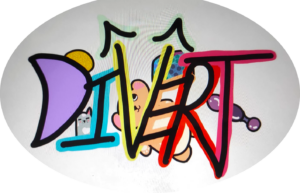Research at COMIC
At COMIC we work with children, young people and their families to bring together ideas and carry out research that will drive forward the development of new and exciting ways to improve wellbeing and support their mental health. Our experienced research team work together with local schools, medical staff, university researchers and external partners (such as charities) to make sure that we are at the cutting edge of children and young people's mental health research.
Find out more about our recent projects by clicking the tabs below.
Social and emotional wellbeing
 ASPECT (Alleviating Specific Phobias Experienced by Children Trial)
ASPECT (Alleviating Specific Phobias Experienced by Children Trial)
This study investigated whether One Session Treatment vs Cognitive Behaviour Therapy was effective for treating specific phobias in children and young people.
 DIVERT
DIVERT
Co-producing a distress tolerance intervention to reduce self harm episodes in young people.
This study is looking at how distractions from difficult thoughts, emotions and self-harm urges are used by young people and if they are helpful.
Neurodiversity

CONIFAS
This project co-produced a nature-based intervention for children with ADHD with families, children and professionals.

Soundfields
This study looked at whether Virtual Reality (VR) can help autistic children with sound hyper-sensitivity.

I-SOCIALISE
Investigating Social Competence and Isolation in children with Autism taking part in LEGO® based therapy clubs In School Environments.
This study examined whether LEGO® based therapy (play brick therapy) groups in schools have any impact on the social and emotional competence and perceived social isolation of autistic children. The research also aimed to look at whether it is cost-effective for schools to run and whether the young people and school staff like it.

ASSSIST2 – (Autism Spectrum Social Stories™ In Schools Trial 2)
This study investigated if Social Stories™ can support autistic children at school and if they are cost effective.

MARS
A project to investigate whether microRNAs can be used as biomarkers in autism.
Social Prescribing

Safety Nets
A social prescribing intervention for young people on CAMHS waiting lists, delivered by combining physical activity and psychoeducation sessions at local sports clubs.

Green and Blue Spaces
A survey study to discover how people used green and blue spaces during COVID-19 Lockdowns in the UK.
The Deaf experience

Diagnostic Instruments for Autism in Deaf children’s Study (DIADS)
Modification of diagnostic assessments to improve autism diagnosis for Deaf children.

Attachment
A systematic review of early interventions for parents of Deaf infants – a systematic review of the research evidence for early parenting support interventions of Deaf infants.

Engaging with the Deaf community
Raising the awareness of British Sign Language Engaging with the Deaf community – Raising awareness of British Sign Language.
projects
14Dec
2023
Analysis of treatment seeking UK Gamblers at Northern Gambling Service
Gambling in the UK: An analysis of data from individuals seeking treatment at the UK NHS Northern Gambling Service

14Dec
2023
MoreRESPECT
MoreRESPECT: A Randomised controlled trial of a sexual health promotion intervention for people with severe mental illness delivered in…

14Dec
2023
Quantitative MRI in the NHS – Memory Clinics / QMIN-MC
Quantitative MRI of Brain Structure and Function in NHS Memory Clinics

04Jan
2024
Genetic Links to Anxiety and Depression (GLAD)
NIHR Mental Health BioResource for Depression and Anxiety
